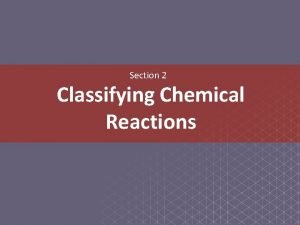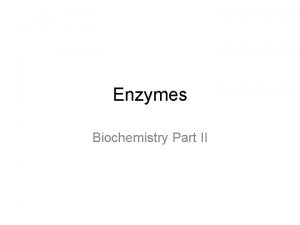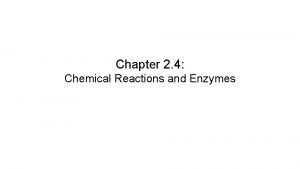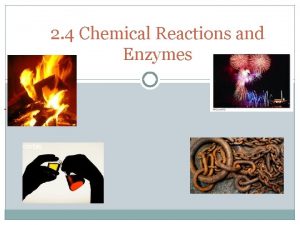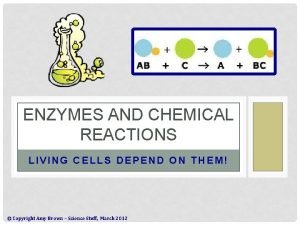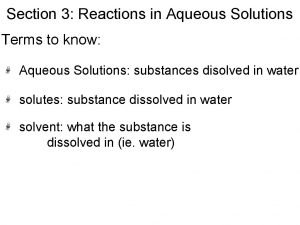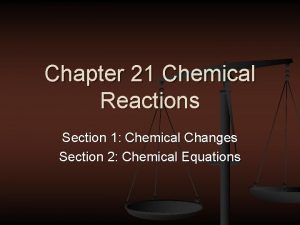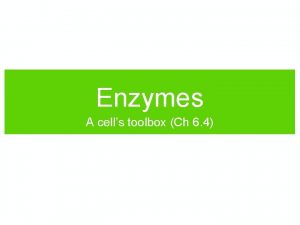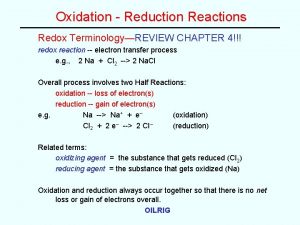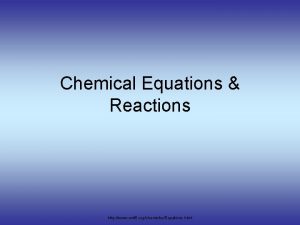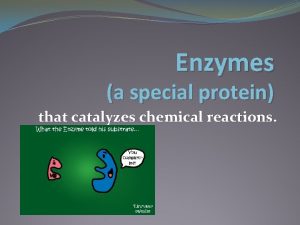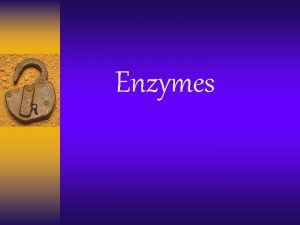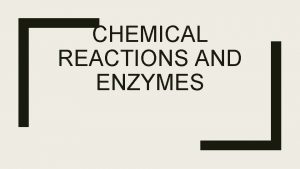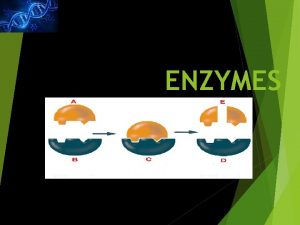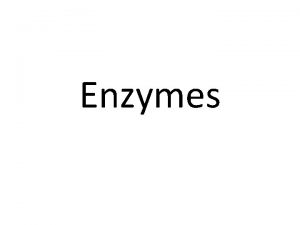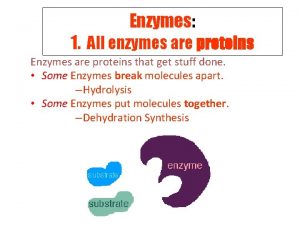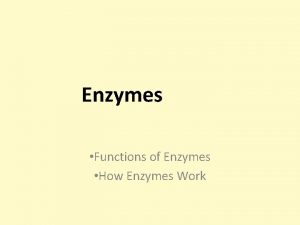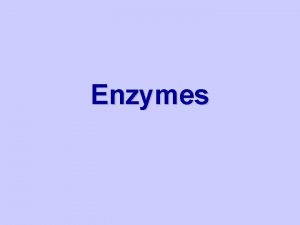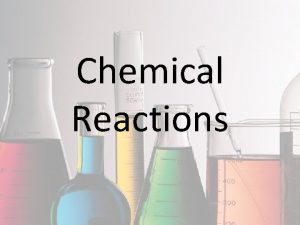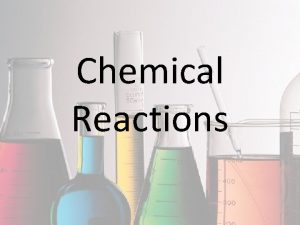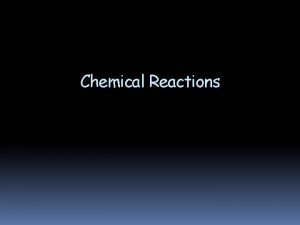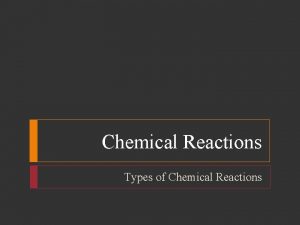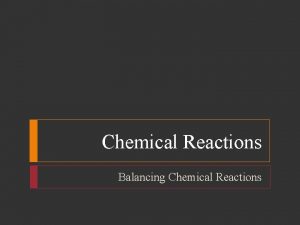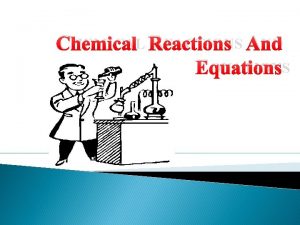Enzymes a special protein that catalyzes chemical reactions
















- Slides: 16

Enzymes (a special protein) that catalyzes chemical reactions.

Some Vocabulary Catalyze: increase the rates of Activation Energy: the minimum energy required to start a chemical reaction.

Some Vocabulary Substrate: Molecule acted upon by the enzyme Product: Result of the enzyme/substrate reaction

Some Vocabulary Active Site: Location of substrate attachment to enzyme.

Special Proteins • Enzymes help control chemical reactions by acting as catalysts. • Catalysts speed up reactions by lowering activation energy.

Each enzyme has a certain job and does only that job. Enzymes are special proteins that build or break down materials inside or outside the cell.

Enzymes increase the speed of reactions that would otherwise occur slowly.

1. Where might this reaction occur in the body?

2. Has this reaction caused any change in the structure of the enzyme?

Special Proteins Enzymes speed up the rate of reaction by DECREASING the ACTIVATION ENERGY

Enzymes and Homeostasis �Temperatures above 40◦C (104◦F) denature/destroy enzymes. �p. H �Extremely high or low p. H values generally result in complete loss of activity for most enzymes.

How are Enzymes used in the body? ? ? DIGESTION �during digestion, intestinal cells produce enzymes, which split the food into small molecules so they can be absorbed into the blood INFLAMMATION �enzymes are produced by neighboring cells, so that the blood clotting process can happen and to remove destroyed tissue.


Type of Digestion Carbohydrate Protein Nucleic Acid Lipid (fat) Enzyme Produced in Site of Release p. H Level Salivary Amylase Salivary Glands Mouth Neutral Pancreatic Amylase Pancrease Small Intestine Basic Maltase Small Intestine Basic Pepsin Gastric Glands Stomach Acidic Trypsin Pancreas Small Intestine Basic Peptidase Small Intestine Basic Nucleosidase Small Intestine Basic Lipase Small Intestine Basic


Draw and Label
 Section 2 classifying chemical reactions
Section 2 classifying chemical reactions Chemical reactions section 2 classifying chemical reactions
Chemical reactions section 2 classifying chemical reactions Biology-roots.com
Biology-roots.com Section 2-4 chemical reactions and enzymes
Section 2-4 chemical reactions and enzymes What is released or absorbed whenever chemical
What is released or absorbed whenever chemical Section 2-4 chemical reactions and enzymes
Section 2-4 chemical reactions and enzymes Enzymes speed up chemical reactions by ____
Enzymes speed up chemical reactions by ____ Types of reactions
Types of reactions Section 1 chemical changes
Section 1 chemical changes Are kc and kp equal
Are kc and kp equal Chapter 12 enzymes the protein catalyst
Chapter 12 enzymes the protein catalyst 20 examples of redox reaction
20 examples of redox reaction Unit 5 chemical reactions answers
Unit 5 chemical reactions answers Ngoại tâm thu thất chùm đôi
Ngoại tâm thu thất chùm đôi Block nhĩ thất cấp 1
Block nhĩ thất cấp 1 Thơ thất ngôn tứ tuyệt đường luật
Thơ thất ngôn tứ tuyệt đường luật Thơ thất ngôn tứ tuyệt đường luật
Thơ thất ngôn tứ tuyệt đường luật
